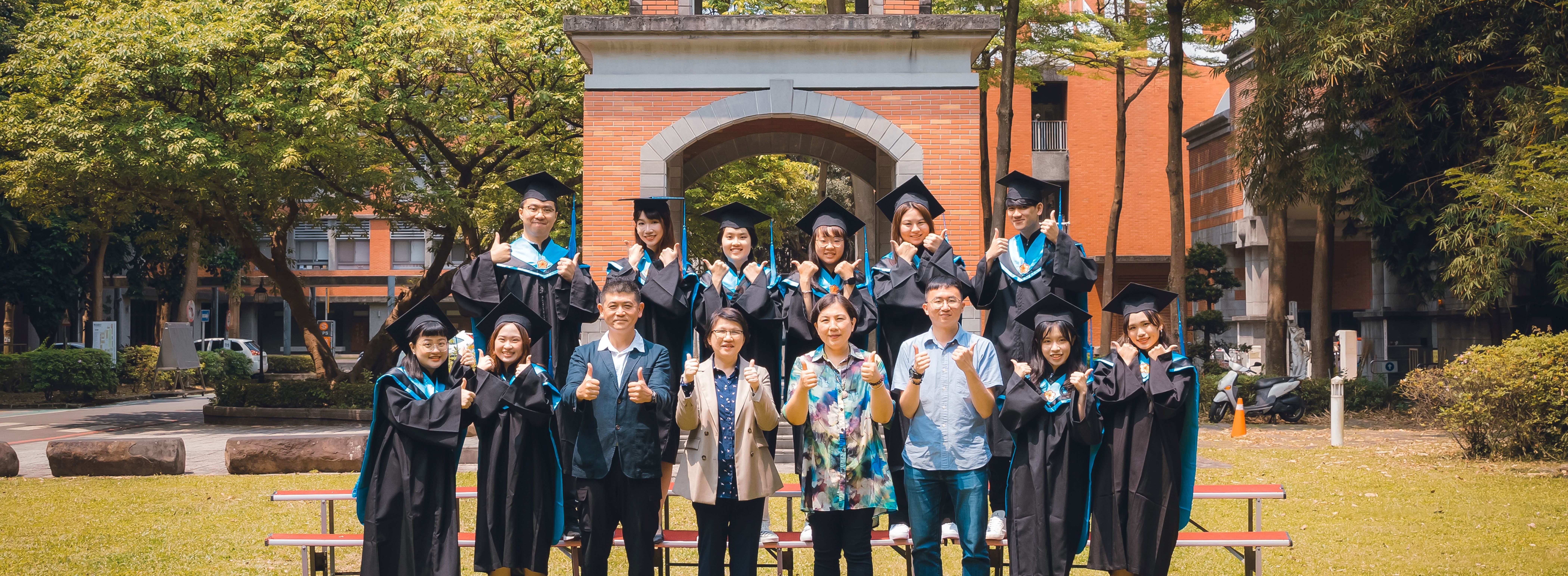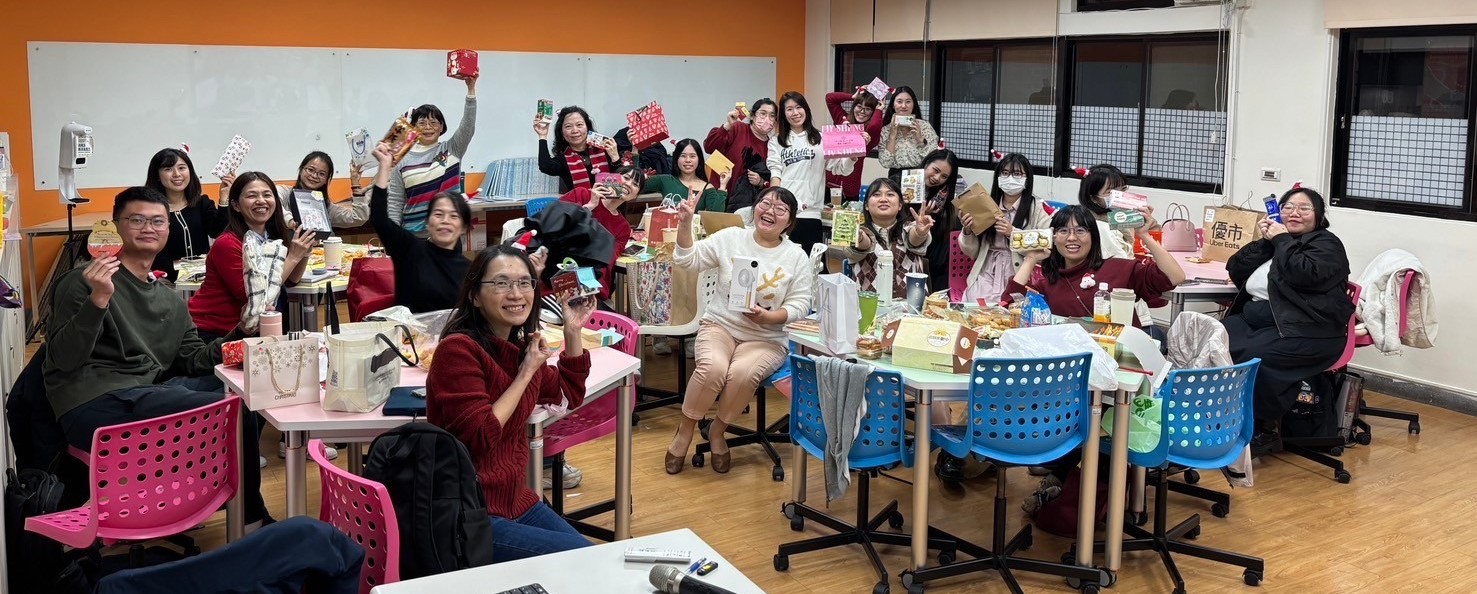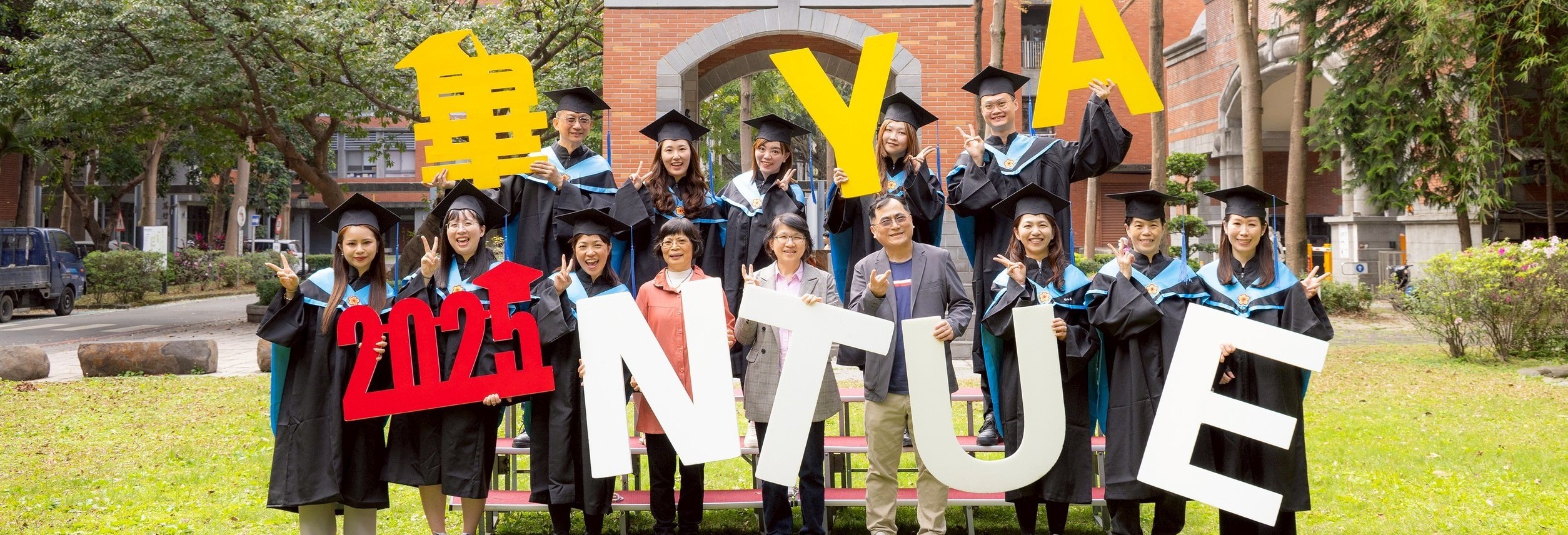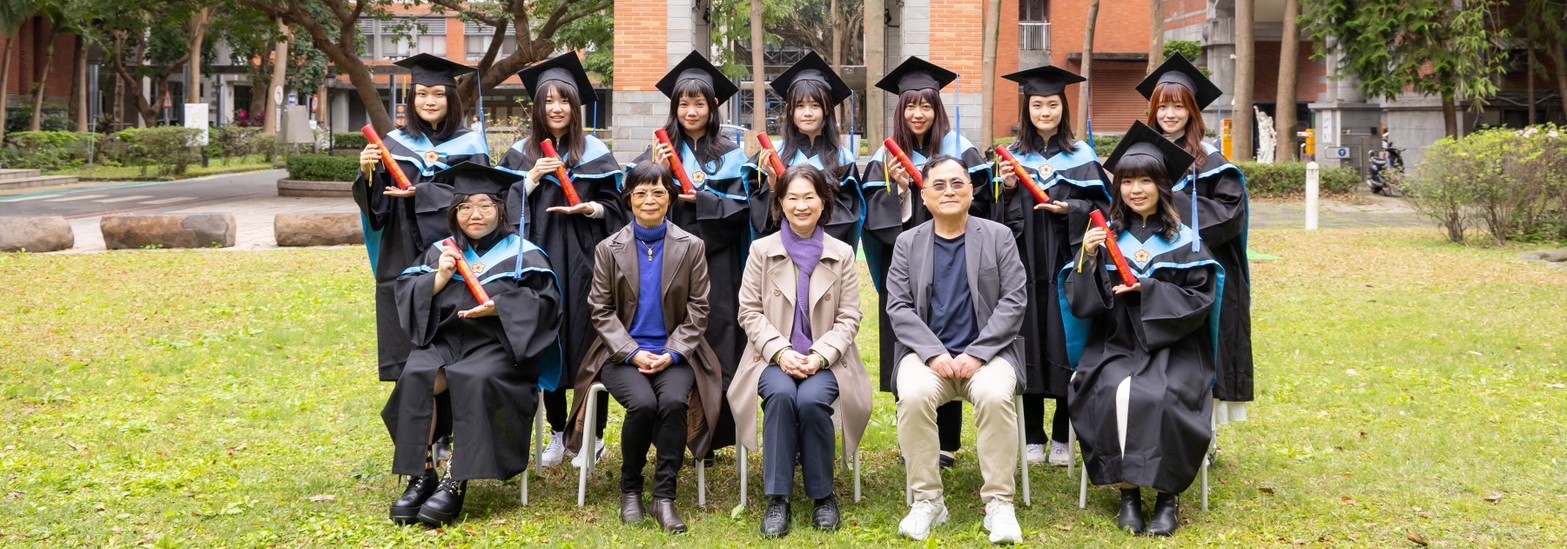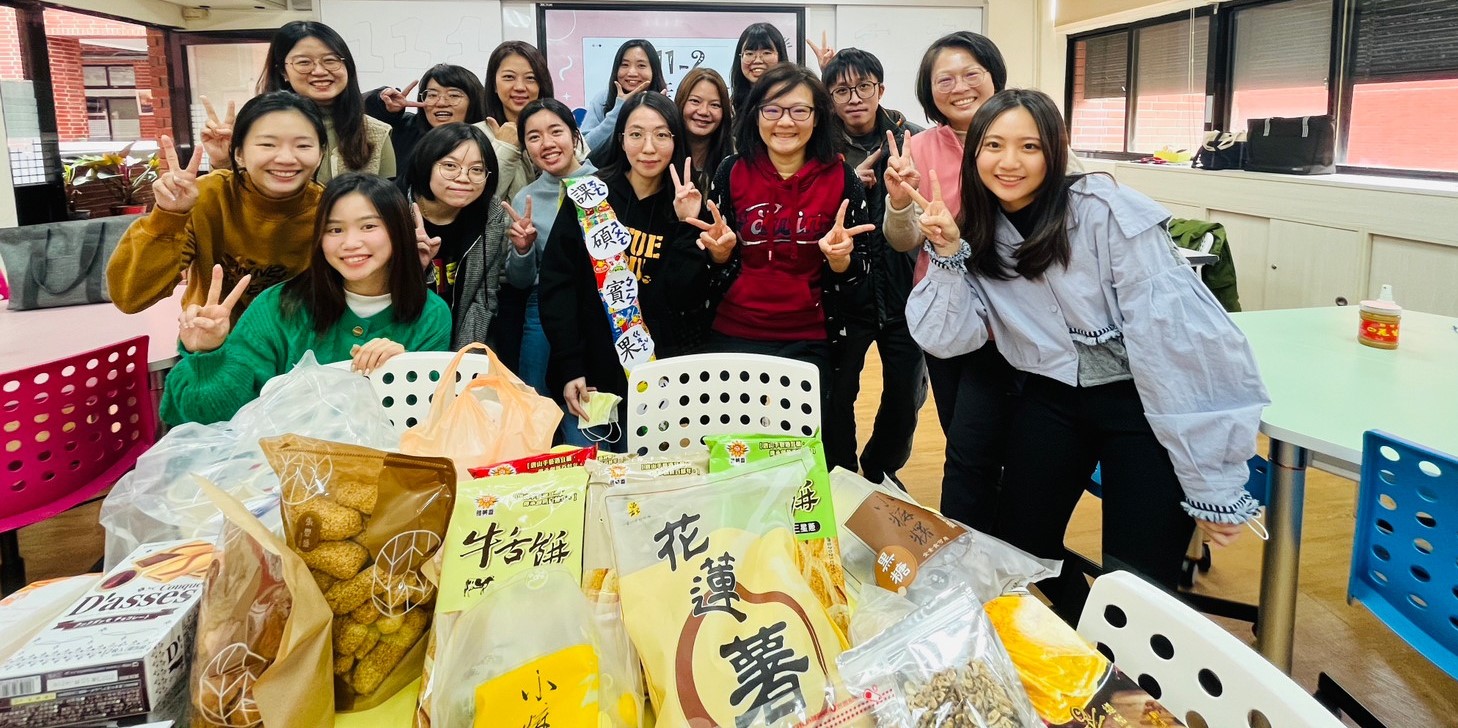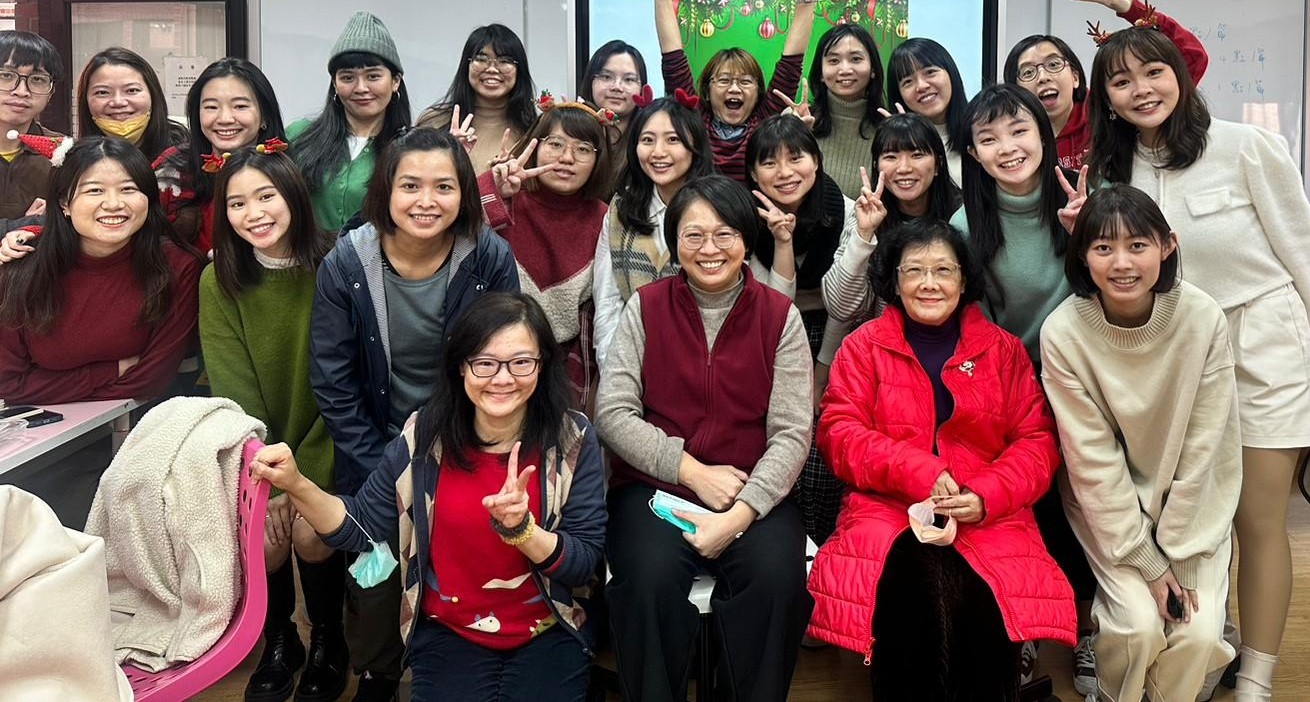View count:
37136
History ect
History and Development of the Master's Program in Educational Communicationss and TechnologyThe idea to establish the Master's Program in Educational Communications and Technology (formerly known as the Institute of Educational Communications Technology) was purely coincidental. In July 1997, during a discussion about establishing new departments and institutes at the National Taipei University of Education, some faculty members expressed that the opinions of alumni favored the establishment of a new Institute of Media and Information. The voting result showed that the proposal to establish a new Institute of Educational Technology received the second-highest number of votes, ranking only behind the long-planned independent Department of Counseling.
In the summer of 1997, the application for the “Graduate School of Educational Technology” passed the review of the departmental adjustment group and the university council, gaining eligibility to apply for the establishment of the institute in the 88th academic year. In June 1998, the Ministry of Education notified that the application for the “Graduate School of Educational Technology” did not pass, and the university decided to give the four units that failed the application another chance to apply.
Although the Teacher Education Law and its implementation regulations had been announced, the market for elementary school teachers was still not saturated, and graduates of teacher colleges had good employment prospects. In addition to requiring teacher colleges to continue offering a one-year postgraduate elementary school teacher program, the Ministry of Education also initiated a new program for elementary school English teacher education. However, President Eu Yeu-tan anticipated the difficulty in finding positions for elementary school teachers in the future and believed that the establishment of a department “related to education but unrelated to teacher training” should be a unique path for the National Taipei University of Education. Therefore, through the Office of Academic Affairs, he asked Ms. Li Zong-wei, the author of the application for the "Institute of Educational Technology," to try again.
In late August 1998, Professors Li Wen-Rui, Ho Jung-Kwei, Hsu Chia-Shih, Hsu Hsin-Yi, Huang Kuang-Hsiung, and others provided feedback and proposed revising the initial draft of the application, suggesting to add the word “Communicationss” to the name “Educational Technology” to highlight its characteristic of integrating technology and to avoid confusion with the Institute of Information Education. In May 1999, the Ministry of Education approved the establishment with the name “Graduate School of Educational Communications and Technology.” In February 2000, the Ministry of Education approved the preparatory plan, and the Master’s Program in Educational Communications and Technology was scheduled to be established in the 2000. President Eu appointed Ms. Li as the director of the preparatory office for the “Graduate School of Educational Communications and Technology,” actively carrying out student recruitment and website construction, among other tasks.
In mid-February of '89, the institute's website was launched, designed by Chen Ying-Chih, a student from the '90 class of the Department of Elementary Education. Wu Chao-Yen and Wu Yen-Te, two students, assisted with administrative tasks. In late May, Ms. Fang Yan-Fei, a newly hired teaching assistant, joined the institute, and the preparatory office was located in Room 107 of the Audiovisual Center, marking the initial establishment of the Educational Communications and Technology Institute. On June 24, a new student tea party was held, with all ten first-year students attending. In early July, a two-month-long “Computer Battle Camp” designed for new students commenced, taught voluntarily by Professor Liu Yuan-Chen.
On August 1st, 2000, the Educational Communications and Technology Institute was officially established, and Ms. Li became a full-time faculty member and the institute director. The university allocated the second floor of the Audiovisual Center for office and teaching spaces, and after the previous occupant moved out in November, the renovations began, completed in mid-January of the following year. On January 16, 2001, a founding tea party was held, with President Eu Yeu-Tan, former President Chen Chin-tan, Director Wen Chuan of the Department of Education at NTUE, Director Wang Chien-Hua of the Institute of Education and Technology at Tamkang University, as well as other university faculty and esteemed guests from both on and off-campus attending to extend their congratulations.
In August 2001, Ms. Chao Chen-i and Ms. Chien Cheng-Chih were newly hired as full-time faculty members at the institute, while Ms. Li took a one-year sabbatical. Professor Liu Yuan-chen from the Institute of Mathematics and Professor Liu Yuan-Chen from the Department of Mathematics took on the role of director, and Ms. Chiu Chung-Chi assumed the position of teaching assistant.
During the initial years of the institute's establishment, efforts were devoted to defining its direction, establishing distinctive features, and designing forward-looking courses to meet the needs. Due to having only one full-time faculty member, additional experienced teachers were hired part-time. There were three distinctive features. First, to implement comprehensive learning, compulsory non-credit service courses were designed to encourage students to cultivate both knowledge and virtues, emphasizing ethics and service dedication. Second, recognizing that high-quality graduates are the key to outstanding performance in the job market, a comprehensive and professionally-oriented qualification examination was designed, covering teaching design, information practice, and English. Third, to avoid falling into the misconception that technology equals mere technical skills, the teaching emphasized training in inspiration and independent thinking, and a required course on "Technology and Humanity" delved into philosophical reflections.
After taking over as director, Professor Liu laid the foundation for teaching, research, and outreach services at the institute. For example, in November 2001, a Media Literacy Workshop was held; starting in '91, the institute assisted the Ministry of Education in promoting the integration of information technology into elementary school teaching, conducting on-site visits to Taipei County and Yilan County; in 2003, the institute developed "National Taipei University of Education Asynchronous Distance Learning Platform" courses, and the instructors offered four courses. In August 2004, the In-Service Master’s program was approved and enrolled its first students in September of 2004.
As Professor Liu's term as director was about to end in July 2004, according to the institute's selection and recommendation procedure, he was reappointed with unanimous approval. However, President Chang Yu-Cheng indicated that Professor Liu should become the director of the newly established Institute of Information Science in August. The institute filed a petition once again, requesting President Chang to respect the institute's decision, but the president believed that the Institute of Information Science needed Professor Liu's leadership even more and instructed that Ms. Li take over as the director starting in August.
After the institute was established, its website was designed by the first-year student, Xue Wei-Xheng. The website was rich in information and highly interactive, and the guestbook was particularly well-received. In September 2005, the website was redesigned by Lin Huai-Chun, emphasizing a simple design concept while retaining the guestbook, internet postal services, and other features. In the first five years since its establishment, the institute's faculty members worked together, and all teaching assistants, including Fang Yan-Fei, Chiu Chung-Chi, Yao Ching-Yuan, and Chen Yi-Hung, contributed significantly to its achievements. In terms of faculty, in addition to full-time teachers, part-time teachers from within and outside the university


